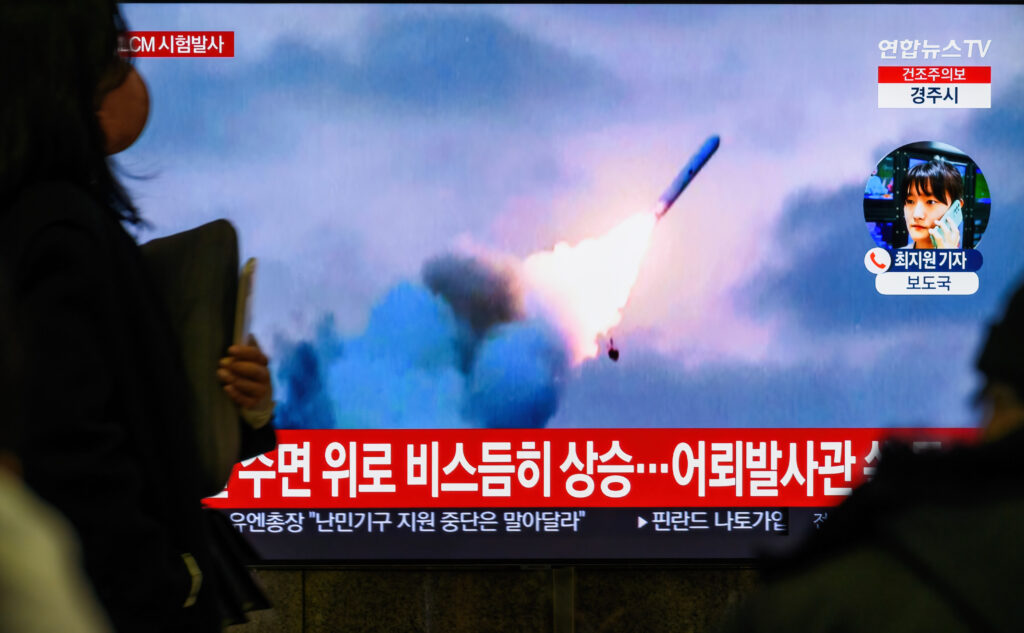North Korea deleted a large portion of its online presence in January 2024, with eight of its websites going offline along with most of its social media accounts. This followed a speech by North Korea’s leader Kim Jong-un during an important party plenum in late December 2023 where he declared that unification with South Korea was impossible.
The scope of this deletion only slowly made headlines in South Korea due to the comprehensive censorship of North Korean websites and social media accounts. This was underlined by the piecemeal fashion in which journalists realised what was missing. Yonhap News quickly noticed the disappearance of sections on unification on two websites on 4 January 2024, but it took a full week for a journalist at News1 to figure out that content had also disappeared from a third website. The same was repeated several days later when whole websites disappeared.
Despite his initial campaign pledge, South Korean President Yoon Suk-yeol has refused to lift censorship of North Korean media, which is currently enforced through the National Security Law. Though he has repeatedly criticised ‘fake news’ and anti-intellectualism, he continues to ignore the question of how journalists and analysts are supposed to accurately report on and understand North Korea without access to basic information.
His government has also refused to explain why censorship has not been lifted even slightly after almost two years, pointing only to ‘a lack of public support’. Not surprisingly, right-wing activists had showered the government with protests hoping to stop the plan to relax censorship.
The vast censorship has led to the bizarre phenomenon that South Korean journalists frequently learn about major news from international outlets. They only noticed that scenes from the movie Frozen were being used in North Korean schools when NK News reported on it five days after being shown on North Korean television in May 2023.
Weeks before, major outlets only learned of an actor being scrubbed from movies aired on North Korean television after a scholar released her analysis through NK News. In this case, the scholar and journalists had missed domestic reports on the actor being cut from movies three times since May 2021.
This underlined how little access South Korean journalists have to North Korean television footage. If outlets cannot afford an expensive satellite dish and recording equipment, the only option is to access footage through the Ministry of Unification’s library, which releases recordings only after a two week delay.
Between 18 and 21 October 2023, North Korea revealed in state-run newspaper Minju Chosun two central pillars of its 2023 electoral reform that would be applied in November’s local elections — separate ballot boxes for dissenting votes and two-person competitions for candidate nominations. This made it obvious that North Korea would give up on its alleged 100 per cent approval rates, which eventual election results confirmed.
But this time even after an analysis was published on NK Pro — a sister site of NK News — on October 23, South Korean journalists did not report on this information for weeks. The fact that all access points to the Minju Chosun newspaper are censored certainly played a role.
The Ministry of Unification’s library claims to have found no outlet selling print Minju Chosun issues since 2020, while a Japan-based service providing almost immediate access to a digital version online is censored. The newspaper is shown in full on North Korean television in the afternoon, but there are no public channels available to access it and the only YouTube channel that uploads those newspaper sections daily is also censored.
The progressive online outlet Tongil News was the first to write about the electoral reforms on 5 November 2023, citing the newspaper Choson Sinbo, run by the North Korea-friendly Association of Koreans in Japan and censored by South Korea. Yonhap News, South Korea’s quasi-public news agency, only released a report on 8 November, following a Radio Free Asia piece from the day before that only commented on the two-person competitions.
But the problem becomes even more obvious when South Koreans have no foreign outlets to rely on. While South Korean journalists now pay a lot of attention to disappearing content on North Korean websites or the halt on usage of certain terms, they missed the fact that major websites stopped publishing unification-related content earlier in 2023. The unification sections in Minju Chosun and Ryomyong did not publish new content after early May 2023 — when inter-Korean relations had hit a new low.
This silence should have alarmed South Korean journalists and hinted that North Korea was set to cancel agreements including the 15 June North–South Joint Declaration. But due to censorship, none of the South Korean public noticed this sign.
Naturally, foreign journalists take their clues from South Korean media about what is newsworthy. The fact that much goes unreported in South Korea or is reported late and with only shallow analysis thereby also diminishes the quality of global coverage.
This could be blamed on the generally low quality of South Korean journalism or its lack of interest in North Korea. But a major factor hindering constructive reporting has been the vast censorship by the South Korean state. This censorship keeps not just South Korean journalists but also their audiences, domestic and international, from exploring the facts.
Martin Weiser is an independent researcher based in Seoul.

